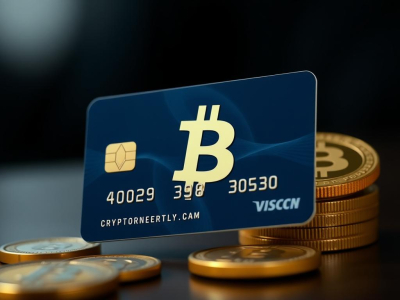
Integrating blockchain technology into payment systems enhances liquidity and reduces transaction costs. By leveraging smart contracts, businesses can automate processes, ensuring that transactions are executed without intermediaries. This shift not only accelerates payment times but also minimizes the risk of fraud, a critical factor in today’s digital economy.
The tokenization of assets allows for fractional ownership, providing broader access to investment opportunities. Individuals can engage with various financial instruments using cryptocurrency, which further democratizes finance. This model invites innovation and competition among traditional financial institutions, leading to significant disruption.
DeFi platforms facilitate peer-to-peer transactions through decentralized protocols, eliminating the need for third-party verification. As a result, users experience faster transaction speeds and improved efficiency. The rise of these systems underscores a pivotal transition toward more transparent and accessible financial services, marking a significant departure from conventional banking practices.
The evolution of payment systems through DeFi represents not just a trend but a fundamental shift in how value is exchanged globally. Understanding this landscape is crucial for anyone looking to leverage emerging technologies in finance.
How DeFi Reduces Transaction Fees
Decentralized Finance (DeFi) minimizes transaction fees through various mechanisms that leverage smart contracts and blockchain technology.
- Smart Contracts: Automation of processes via smart contracts eliminates the need for intermediaries, leading to lower costs. These self-executing contracts facilitate peer-to-peer transactions directly on the blockchain.
- Tokenization: The ability to tokenize assets allows for fractional ownership and immediate liquidity. This reduces overhead costs associated with traditional asset transfers.
- Reduced Intermediary Costs: Traditional payment systems often involve multiple parties, each taking a cut. DeFi platforms streamline this by allowing direct transactions between users, significantly lowering fees.
- Network Efficiency: Blockchain technology enhances transaction speed and reliability. Faster transaction processing reduces congestion and associated fees during peak times.
- Access to Global Markets: DeFi opens access to a broader user base without geographical restrictions. This increased competition among participants can drive down transaction fees further.
The disruption caused by DeFi in the financial sector leads to continuous innovation, pushing traditional systems to adapt or lose relevance. As cryptocurrency adoption grows, so does the potential for lower transaction costs across all sectors leveraging these advancements.
Impact of Smart Contracts on Payments
Smart contracts are transforming the payment landscape by enabling direct transactions without intermediaries. This innovation streamlines processes, reduces delays, and enhances security. By utilizing blockchain technology, smart contracts execute predefined conditions automatically, ensuring trust and transparency in every transaction.
The tokenization of assets through smart contracts allows for fractional ownership and easier transferability. This creates more liquidity in markets traditionally hindered by cumbersome processes. For instance, real estate transactions can be simplified, allowing buyers to purchase fractions of properties with cryptocurrency.
Moreover, the disruption caused by smart contracts extends to cross-border payments. Traditional systems face challenges such as high fees and lengthy processing times. Smart contracts mitigate these issues by facilitating peer-to-peer transactions that settle quickly and cost-effectively using cryptocurrencies.
The integration of smart contracts not only innovates payment methods but also empowers users with greater control over their funds. As this technology matures, its role in decentralized finance will likely expand, leading to further enhancements in financial inclusion and efficiency across various sectors.
Cross-Border Transactions Simplified
Implement blockchain technology to streamline cross-border transactions. Tokenization of assets enables instant transfer, mitigating delays associated with traditional banking systems. Utilize cryptocurrency for direct payments, eliminating intermediaries that inflate costs and processing times.
Smart contracts automate compliance and execution of agreements, reducing human error and enhancing trust between parties. With programmable conditions embedded in these contracts, transactions occur seamlessly upon meeting predefined criteria.
Adopt decentralized platforms that provide global access without the constraints of geographical barriers. This innovation empowers users in developing regions to engage in international commerce previously deemed inaccessible.
Focus on leveraging DeFi solutions that minimize transaction fees while maximizing speed and security. The disruption caused by decentralized networks presents an opportunity for businesses to optimize their payment processes significantly.
Monitor emerging trends in the DeFi space, as continuous advancements could reshape the future of cross-border payments, making them more efficient and user-friendly. Keep informed about regulatory changes affecting cryptocurrency use in international trade to ensure compliance and mitigate risks.
Security Risks in DeFi Payments
Implement multi-signature wallets to enhance security for DeFi transactions. This requires multiple private keys to authorize a transaction, mitigating risks associated with single-point failures.
Smart contracts are susceptible to vulnerabilities such as reentrancy attacks and integer overflows. Conduct thorough audits and utilize established frameworks like OpenZeppelin to ensure robust code integrity before deployment.
Phishing attacks targeting users of DeFi platforms remain prevalent. Educate users on recognizing malicious links and employing hardware wallets for secure access to their cryptocurrency assets.
The lack of regulatory oversight in DeFi can lead to increased scams and fraudulent schemes. Encourage the use of verified platforms with transparent practices, ensuring that users have access to reliable liquidity sources.
Keep an eye on oracle manipulation risks affecting price feeds within smart contracts. Use decentralized oracles such as Chainlink that aggregate data from multiple sources, reducing the impact of any single point of failure.
Data privacy concerns arise when using blockchain technology for payments. Implement privacy-focused solutions like zk-SNARKs to protect user identities while maintaining transaction transparency.
Auditing protocols should be part of regular maintenance for DeFi applications. Establish a routine schedule for security assessments to identify potential weaknesses that could disrupt payment systems.
Encourage community engagement in identifying vulnerabilities through bug bounty programs. This not only incentivizes ethical hacking but also fosters innovation within the ecosystem by creating a culture of shared responsibility for security.


You can be the first!